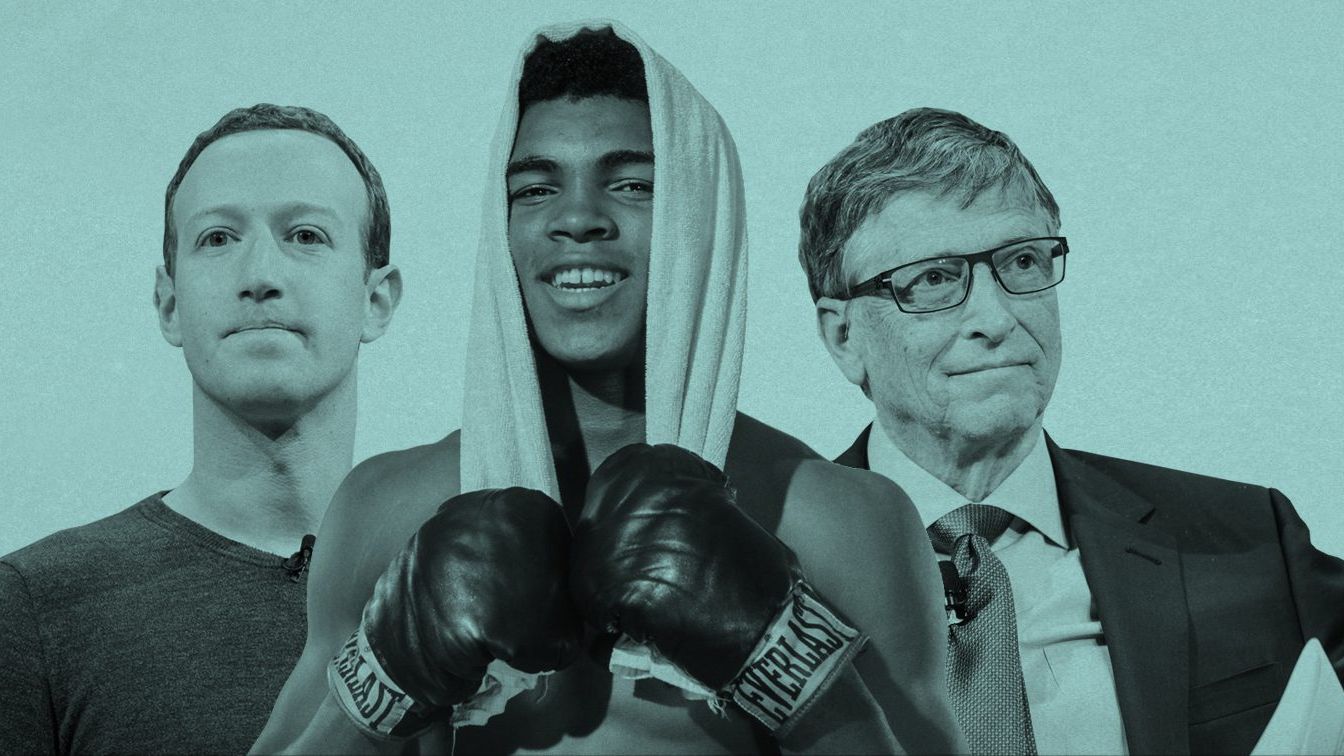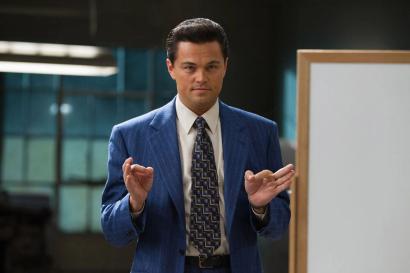

Productivity advice from the world’s most successful people
From taking breaks to utilising three computer screens, here’s how you can supercharge the daily grind
Words: Jonathan Wells
It can be tricky, even at the best of times, to motivate yourself. You may have successfully started up your first start-up, or got that promotion you’ve been vying for, but what now? How can you keep plugging away at the same speed, with the same level of focus and determination? After all, there are only so many hours in the day — and you are but a man.
Thankfully, you’re not the first heavy-hitter to step up to the plate. There are countless great entrepreneurs, leaders and individuals you can learn from. So, in your interests, we’ve chosen a handful of the world’s most successful people, and laid out their productivity advice. Get ready to supercharge your workstation.
Steve Jobs was all about streamlining your focus
Having revolutionised the tech world with Apple, Steve Jobs was the man newly appointed Nike CEO Mike Parker turned to when he needed some solid advice. Jobs’ take? “Nike makes some of the best products in the world. Products that you lust after. But you also make a lot of crap. Just get rid of the crappy stuff and focus on the good stuff.”
It makes sense. And, a year later, the Apple founder further explained his method to 200 Yahoo executives.”This is how I do it,” he said. “I take a sheet of paper, and I say, ‘If my company can only do one thing next year, what is it?’ Literally, we shut everything else down.”
Of course, being successful in your longterm career means grabbing opportunities and exploring new ideas. But, if you try to focus on too many issues, you’ll spread yourself — and your resources — too thin to do anything well. Listen to Jobs. Forget any peripheral tasks and focus first on the foundations of whatever you’re building. The rest will follow.
Mark Zuckerberg gets ahead by trimming the fat
Facebook CEO Mark Zuckerberg is renowned for pulling on the same uniform of a grey hoody and identical T-shirt every single day — and he has been roundly ridiculed for it. But there’s method behind his sartorial madness. “I really want to clear my life so that I have to make as few decisions as possible about anything except how to best serve this community,” he said in his first ever Q&A session in 2014.
He’s also expressed an opinion that deciding what to have for breakfast is ‘silly’, and reports have revealed that his home in Palo Alto is, to put it kindly, minimalist. What can you learn from this? Easy. Distractions, such as deciding what to wear, can interrupt your working rhythm and stop you from paying attention to what really matters.
So, try to minimise any decision making: create yourself a working uniform, build a list every night of the tasks and priorities you need to tackle the next day, and delegate responsibilities to your team where possible. Even outsource daily administration if it will help in the long run.
Muhammad Ali always stuck to his routine
Former world heavyweight champion Muhammad Ali was famously known to have an exceedingly demanding training routine. During an interview with Newsweek in 1978, he even admitted despising it, “I hated every minute of it. But I said to myself, ‘Suffer now, and live the rest of your life as a champion.’”
And didn’t he just? It’s an important lesson to learn. And, although you may not be practising to become a legendary athlete, you presumably want to succeed in your own field. Ali’s words should guide you. They’re a straightforward message, advising you to follow a routine to success — even on the days when you can’t face rolling out of bed.
Start by creating a schedule that works for you. Don’t worry if this takes a while to figure out, as trial and error is one of the best ways to learn what works for you. Start by planning small things, such as when to check your emails and when to take breaks. Then, over time, once you’ve figured out your rhythm, start to pencil-in the more important meetings and ways to execute bigger picture business strategies around this. You’ll be the greatest in no time.
John D. Rockefeller always knew when to take a break
Routine is good, but a break can also be rewarding. And if you need some convincing, then look no further than John D. Rockefeller, the man believed to be the wealthiest individual of all time. In the book, Titan: The Life of John D. Rockefeller, Sr,author Ron Chernow lets us know how careful the money man was when it came to conserving energy:
“He worked at a more leisurely pace than many other executives, napping daily after lunch and often dozing in a lounge chair after dinner,” writes Chernow, also quoting the business magnate as saying: “It is remarkable how much we all could do if we avoid hustling, and go along at an even pace and keep from attempting too much.”
Don’t ever rush yourself or wear yourself out, then. It may sound counter-productive, but success isn’t about packing as much as possible into your day. It’s about focussing your energies on the most important tasks and delegating the rest to colleagues. A fresher mind is more likely to stir up the most creative and well-rounded ideas and solutions. So take a quick kip if needed. After all, even Winston Churchill indulged in a “non-negotiable” afternoon nap — and things worked out pretty well for him.
Elon Musk has mastered the art of multitasking
As the CEO of SpaceX and Tesla Motors and a father of six children, it’s quite hard to believe that Elon Musk averages six hours of sleep a night. His secret? Multitasking. The man conducts business on his phone during meetings, writes emails while scanning invoices and even sends work messages during family time. It may be a controversial, acquired-taste way of doing things, but the South African-born entrepreneur refers to his way of working as “batching”.
Of course, not all of us would be capable of multitasking to this extent. But then, not all of us are running two of the most pioneering transport organisations in the world. The least we can do is emulate Musk’s attitude. By seeing an opportunity to work in every single moment, your workload will diminish rapidly. Could you be crafting an email while that WeTransfer uploads? Do it. A quick check of the stocks while your coffee’s percolating? Why not. Taking your first call of the day during your commute? It’ll all help in the long run.
Bill Gates is a man of many screens
It sounds a little basic, but the most effective way to multitask in front of your computer is to get yourself more screens. In a 2006 blog post, Bill Gates, the then CEO and Chairman of Microsoft, revealed how he turbocharged his working day with a trio of displays.
In order to tackle the hundreds of emails he received on a daily basis, he wrote, “I keep my Outlook inbox open on the screen to the left so I can see new messages as they come in. I usually have the message or document that I’m currently reading or writing in the centre screen. The screen on the right is where I have room to open up a browser or look at a document that someone has sent me in e-mail.”
With one monitor for incoming emails, one showing whatever email he’s working on and one for his regular activities, Gates switched from task to task seamlessly without neglecting one particular issue for a prolonged period of time. Moreover, with three computer screens, the middle display will give you a subconscious ‘centre’, where you can prioritise and focus on your most important tasks.
Walt Disney never let go of his passion
In his biography of Walt Disney, author Neal Gabler quoted the famous American animator as saying: “Despite the pressure and lack of funds I am going to sit tight. I have the greatest opportunity I have ever had and I’m in it for everything by my false teeth.”
It’s a simple sentiment — but one that resonates. Almost all entrepreneurs and professionals will suffer setbacks, financial or emotional, at some point during their careers. Even day-to-day problems can be disheartening, and impact your productivity negatively. And that’s why you must, at all times, keep your passion and desire for your work alight.
There must be a reason you’re doing what you’re doing, and keeping that front-and-centre will see you motivated and happy in what you do. You’ll get ground down at points, but remember your long-term aims and slowly hack away at the task in front of you. Never stress or spiral — just grin a big Disney smile in the face of adversity.
Struggling to keep ahead in the investment game? We asked London’s top wealth managers for their new golden rules…
Join the Gentleman’s Journal Clubhouse here.


